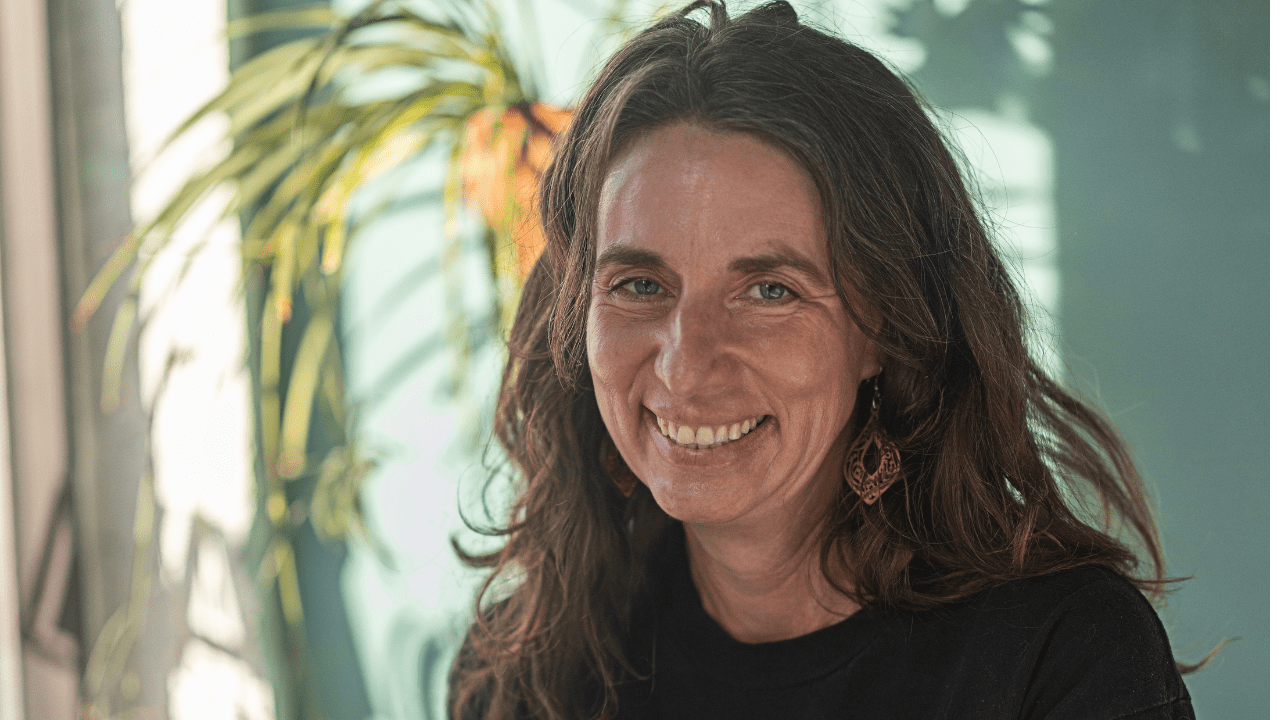Acupuncture Careers: Starting a Community Acupuncture Practice
-
-
Last updated: March 24, 2025
There are many career paths you can take after graduating from acupuncture school. Jessica Hanson, DAOM ‘07 (she/they) has owned and operated Southpoint Community Acupuncture in South Minneapolis for over 15 years. We asked her everything you want to know about starting a community acupuncture practice.

At the same time, the idea of “community acupuncture” was starting to gain momentum. Most people know that community acupuncture occurs with multiple patients in one room at an affordable price, but there’s more to the idea.
“I think of it less as a top-down practice where I am sharing my hard-won expertise, and more like a resource we can use to support our bodies in their quest toward homeostasis,” shared Jessica. Her clinic, Southpoint Community Acupuncture, is down the street from where George Floyd was murdered, and she remembers that time really illuminating the point. “For months none of us could sleep because police and news helicopters were flying overhead all hours of the day and night. Absolutely no one needed me to educate them about yin and yang. We all just needed places where we could feel safe and supported for a short time.”
Opening a Clinic
After graduating from NWHSU, Jessica worked doing acupuncture on a cruise ship to gain experience and save some money. Then, they came home and decided to open a community acupuncture clinic.
It wasn’t the easiest path, but for Jessica it was the one that made sense. “While I was still in school, I started to work with the idea that if I was going to treat people like me—people I identified with in terms of my socio-economic background—it was going to have to be something I created myself, because there was nothing like that in my neighborhood.”
She called the number on the first “for rent” sign she saw in her South Minneapolis neighborhood. Before she knew it, she had signed a month-to-month lease for $800.
“I bought some used furniture and some paint, made a DIY website and some flyers, and invited everyone I knew to come to my clinic’s grand opening,” they shared. I didn’t pay myself very much the first few years.”
She also became a parent shortly after opening the clinic, adding more challenges to the early days of being a business owner. Fifteen years later, there have been plenty of challenges along the way. “We’ve had to move locations a few times. It’s gone from being just me, to having multiple front desk staff and other acupuncturists on staff, back to being just me managing everything. We’ve gone from being almost entirely analog and cash-only to almost 100% digital. Caretaking the clinic along the way has shaped me as a person as well as a health care provider.”
Running a Community Acupuncture Practice: The Basics
There are different ways of starting a community acupuncture practice, but here’s how Southpoint works. Jessica treats everyone in the same room in recliner chairs, and everyone keeps their clothes on. Patients pay for appointments on a sliding scale from $25-$45.
“I don’t do any income verification around that. I just tell people to pay me what works for their budget,” they shared. “When what you charge for acupuncture comes with lower stakes for people financially, that makes it easier for people to try it and see if it’s something useful to add to their toolkit to manage all the toxic stress that 21st century living is throwing at us.”
To Jessica, providing this for people is worth the challenges of running a business. “Every year, more and more research comes out about how chronic stress is damaging our bodies. It’s literally altering our DNA and shortening our telomeres. So the more tools we have to regulate our nervous systems and counter some of that stress, the more we all benefit. Not just on an individual level but also on a societal level.”
Is Community Acupuncture Less Effective?
Jessica pushes back on the idea that community acupuncture is somehow “discount” TCM. “I do think there’s this overall idea in the greater acupuncture world that the service we’re offering is maybe a little less effective or a little less authentic than what you would get in a private room,” she said. “That has not been my experience.”
“I’m definitely not saying that everyone is a good fit for community acupuncture, not at all, but I also am not saying that what we do is easy or low skill. Why would people want to spend their hard-earned money on acupuncture that is sub-par and less effective?”
Building Brilliant Relationships
Beyond their work at Southpoint, Jessica also provides acupuncture at SafeZone Drop-In Center for teens in St. Paul.
They work in an integrative health program built by fellow NWHSU grad Diane Long. “I am mostly a little cog in a machine at Safe Zone. I wouldn’t be there if I didn’t have a relationship with Diane spanning close to 20 years,” said Jessica. “I’m inspired by the effort Diane put into creating a vision of health programming for marginalized young people that looks so layered and supportive.”
Her advice for someone interested in getting involved in projects like that? “Fortify your community with brilliant, caring people the best you can, and see what comes out of those connections.”
Interested in starting a community acupuncture practice? Learn more about NWHSU’s college of acupuncture and Chinese medicine or make an appointment at Southpoint Community Acupuncture.

